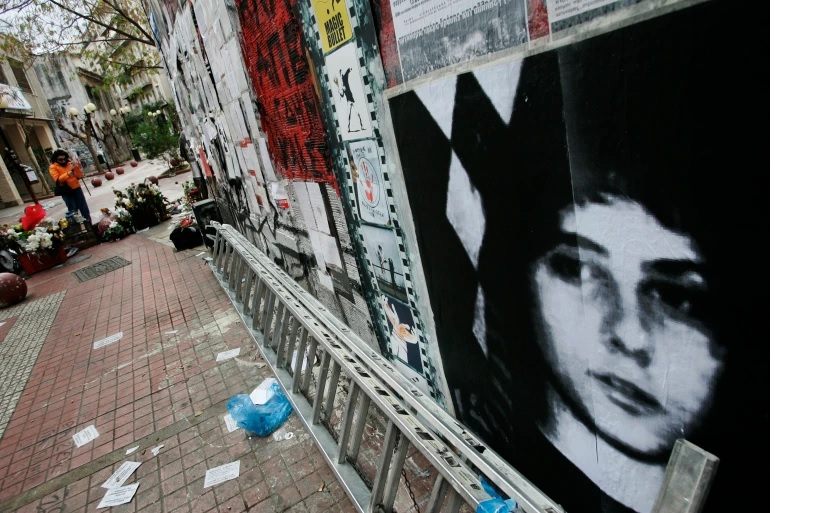
Greek Police detains dozens to stop march in memory of assassinated teenager
Greek Police have detained dozens of civilians who defied the Coronavirus (COVID-19) ban to take part in in the annual commemoration of the fatal shooting of a 15-year-old boy Alexandros Grigoropoulos by a police officer on December 6, 2008.
The officer who killed the teenager was convicted of homicide and was given a life sentence. He was later released in 2019. The family of Grigoropoulos’s has challenged the decision and the matter is in Court.
The Greek Authorities had recently extended the second national lockdown till December 14, 2020. The authorities have also announced a ban on gathering of 4 or more people because of the pandemic. As of now, there have been 1,15471 cases of COVID-19 in Greece and there have been 3003 casualties.
Students, trades unionists and leading leftist politicians defied the ban and took to streets with flowers to pay tribute to Grigoropoulos on the 12th anniversary of his shooting death. More than 4,000 riot police officers were deployed to ensure there are no public gatherings. Footage posted on social media showed police entering an apartment building in Exarcheia, a neighbourhood in Central Athens, to find out protestors. The officers could be seen throwing stun grenades inside a building. Another clip showed police pushing photojournalists and other accredited members of the media.
The opposition has termed the Government’s decision of using the COVID-19 containment measures as a cover for imposing increasingly harsh security measures. They have denounced the police action’s and have demanded the release of those detained. The human rights organisation – Amnesty International had expressed concerns about the decision to issue a blanket ban on public assemblies.
Speaking on the occasion, the Regional Director for Europe, Amnesty International – Nils Muiznieks said, “Restrictions to the right of peaceful assembly to curb the pandemic are permissible but must meet the principles of strict necessity and proportionality. Governments do not have carte blanche to restrict human rights, even during these difficult times.”
The killing dates back to December 6, 2008. Two Special Guards had been engaged in a minor verbal clash with a small group of teenagers in a main street of Exarcheia, outside a shop. On driving away in their police car, they were then confronted by another small group at a nearby street crossing. The 2 guards were ordered by the Greek Police Center of Operations to disengage immediately and withdraw from the confrontation site. However, they did not comply and were later accused of insubordination. Instead, the two special guards chose to station their police vehicle outside the PASOK headquarters, left the car and went to Tzavella Street on foot, in order to confront the youngsters.
Following a verbal abuse, which was initiated by the guards, one of them – Epaminondas Korkoneas, fired his gun. The initial police’s report on the incident claims that the special guard shot in response to a renewed attack by the youths, that involved throwing stones and bottles. Eyewitnesses who spoke to Greek media, however, reported that the special guards were not attacked by the youths. Instead, the special guards approached the group and verbally assaulted them in order to provoke them. The victim, Alexandros Grigoropoulos was transported to the nearby Evangelismos Hospital where he was pronounced dead.
While the unrest was triggered by the shooting incident, it was largely seen as an attempt by people to vent out their frustration about specific economic problems of the country, rising unemployment rate among the young generation and a perception of general inefficiency and corruption in Greek State institutions.
The killing of a young student by police resulted in large protests and demonstrations, which escalated to widespread rioting, with numerous rioters damaging property and engaging riot police with Molotov cocktails, stones and other objects. Demonstrations and rioting soon spread to several other cities, including Thessaloniki, the country’s second-largest city. Outside Greece, solidarity demonstrations, riots and, in some cases, clashes with local police also took place in more than 70 cities around the world in Europe including Amsterdam, Barcelona, Berlin, Bordeaux, Brussels, Cologne, Copenhagen, Dublin, Frankfurt, the Hague, London, Madrid, Nicosia, Paphos, Paris, Rome and Seville.

